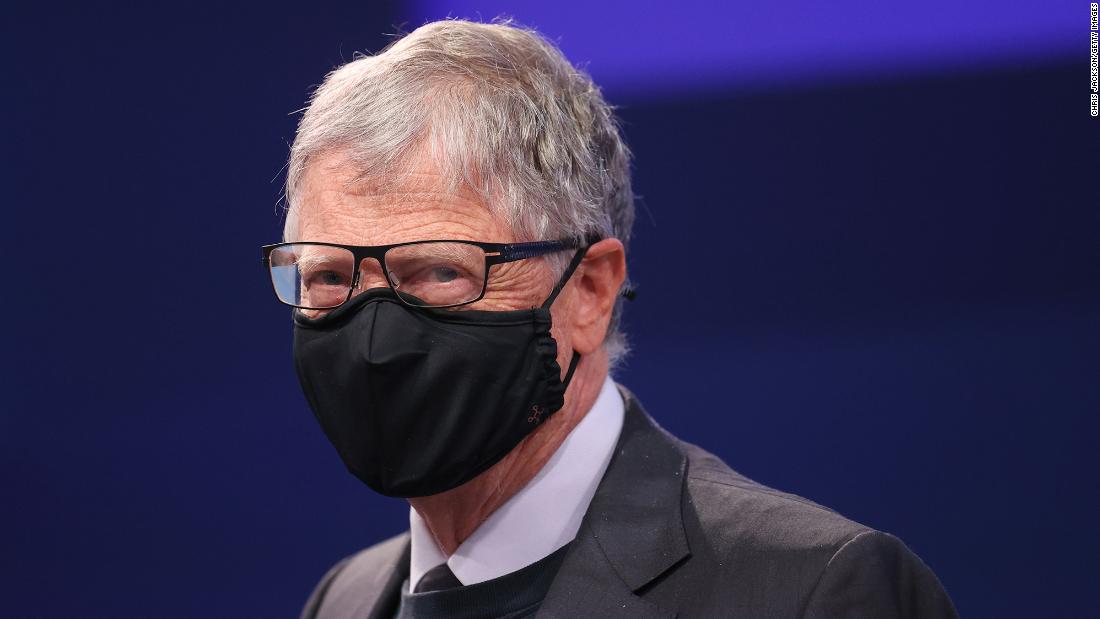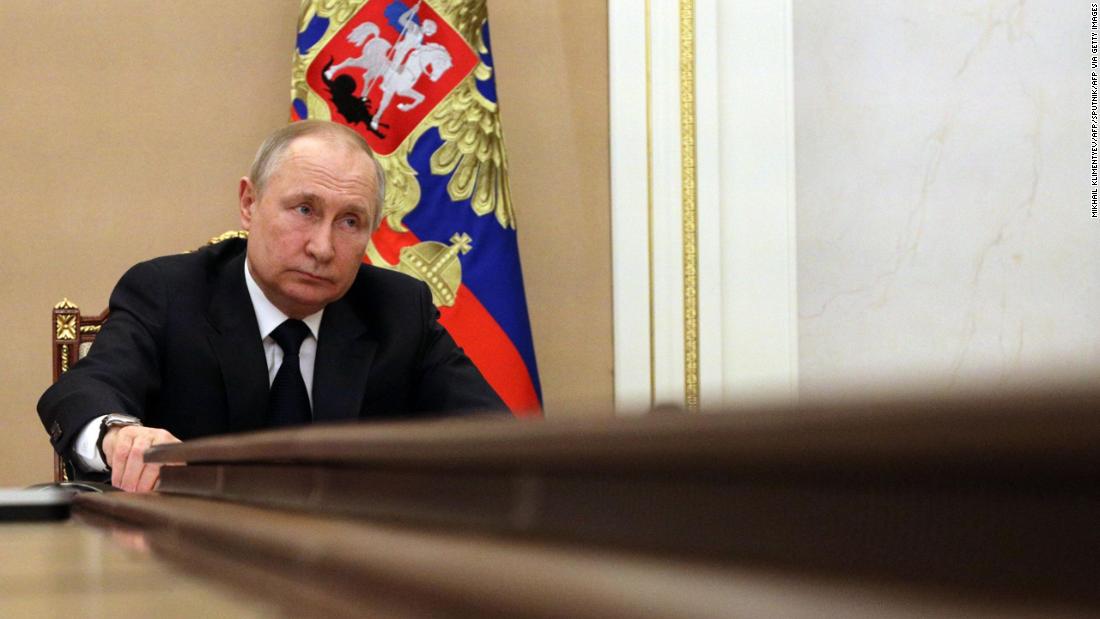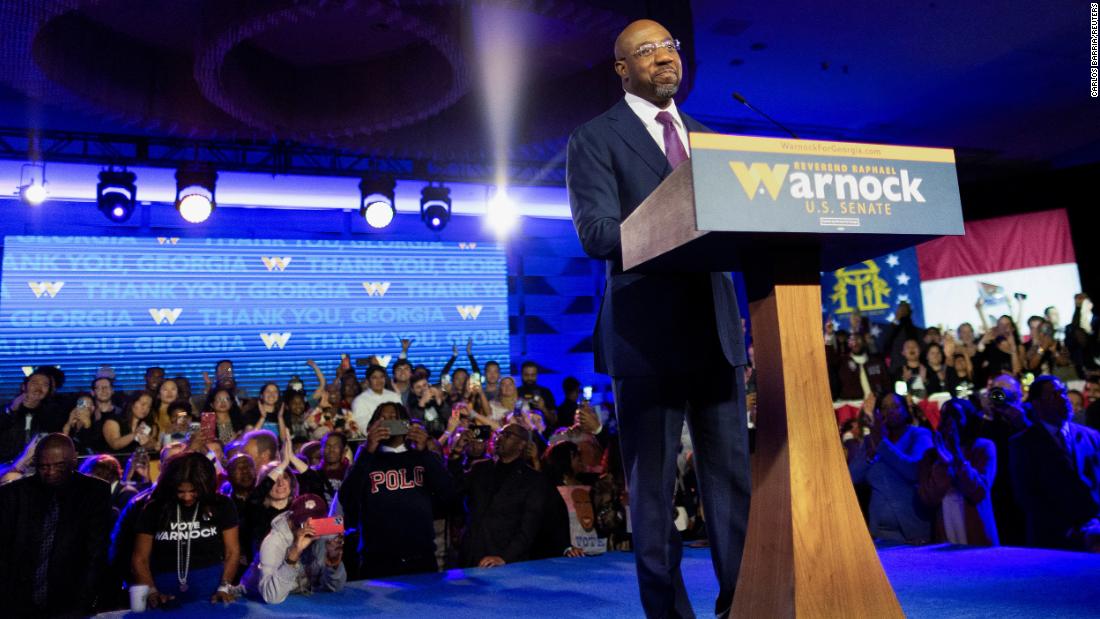Top US general testified that Pence — not Trump — ordered National Guard troops to respond to Jan. 6 riot
4 hr 36 min agoTop US general testified that Pence — not Trump — ordered National Guard troops to respond to Jan. 6 riotFrom CNN's Zach CohenChairman of the Joint Chiefs of Staff Mark Milley is seen on video during the hearing on Thursday. (Jonathan Ernst/Reuters)Rep. Liz Cheney, the vice chair of the Jan 6. committee, revealed new video from the committee’s interview with Chairman of the Joint Chiefs of Staff Mark Milley saying then-Vice President Mike Pence was the one who ordered National Guard troops to respond to the violence on Jan. 6, 2021, but that he was told by the White House to say it was former President Trump.“Vice President Pence – there were two or three calls with Vice President Pence. He was very animated, and he issued very explicit, very direct, unambiguous orders. There was no question about that,” Milley says in the video.“He was very animated, very direct, very firm to Secretary Miller. Get the military down here, get the guard down here. Put down this situation, et cetera,” he added, referring to Pence.Milley also described his interactions with Trump’s chief of staff Mark Meadows that day, drawing a stark contrast between those conversations with Pence.“He said: We have to kill the narrative that the Vice President is making all the decisions. We need to establish the narrative, you know, that the President is still in charge and that things are steady or stable, or words to that effect,” Milley says in the video, referring to what Meadows told him.“I immediately interpreted that as politics. Politics. Politics. Red flag for me, personally. No action. But I remember it distinctly,” he added.CNN previously reported that Pence, not Trump, facilitated the mobilization of National Guard troops to respond to the riot.The video of Milley’s testimony, who remains the top US military officer now in the Biden administration, speaks to how the committee will seek to highlight what Trump was doing, and not doing, as the violence was spiraling out of control – something CNN has previously reported will be an area of focus during the public hearings.4 hr 56 min agoCheney tells Jan. 6 defenders: "Your dishonor will remain" after Trump is goneFrom CNN's Clare Foran GOP Rep. Liz Cheney, vice chair of the Jan. 6 committee, had a critical message to members of her own party who, in her words, defend what is "indefensible." "Tonight I say this to my Republican colleagues who are defending the indefensible: There will come a day when Donald Trump is gone, but your dishonor will remain," Cheney said. Cheney herself has faced a major backlash from fellow Republicans for becoming a prominent critic of Trump and his lies over the election outcome. Last year, Cheney lost her post in House Republican leadership after publicly rejecting for months Trump's lie that he won the 2020 presidential election."In our country, we don't swear an oath to an individual or a political party. We take our oath to defend the United States Constitution. That oath must mean something," Cheney said during the hearing. 4 hr 37 min agoTop DOJ official says Trump loyalist was proposing "meddling" in election outcomeFrom CNN's Alex RogersThe House select committee investigating Jan. 6 will hold a hearing next week exploring how former President Donald Trump “corruptly” planned to replace acting Attorney General Jeffrey Rosen “so the US Justice Department would spread his false stolen election claims,” according to Wyoming Republican Rep. Liz Cheney.In her opening statement, Cheney said that Trump offered Jeff Clark, the acting attorney general of the civil division, the job of acting attorney general, and wanted him to send a letter to battleground states saying that the Justice Department had “identified significant concerns that may have impacted the outcome of the election.” After the letter was circulated around the Justice Department, the plan drew fierce blowback from top officials, including then-acting deputy attorney general Richard Donoghue.In audio aired on Thursday night, Donoghue testified that he told Clark, “What you are proposing is nothing less than the United States Justice Department meddling in the outcome of a presidential election.”Rosen and Donoghue have been invited by the committee to publicly testify in its hearings. Clark has refused to testify.The House committee’s effort follows a months-long investigation by the Senate Judiciary committee, which released a report last year on how Trump and Clark sought to overturn the 2020 presidential election.4 hr 36 min agoPence's fidelity to Constitution was more important than to Trump, VP's chief of staff told committee From CNN's Zachary CohenFormer Vice President Mike Pence’s then-chief of staff, Marc Short, acknowledged to the Jan. 6 committee during closed-door testimony that his former boss knew former President Donald Trump lost the election and determined his “fidelity to the Constitution was more important that his fidelity to President Trump,” according
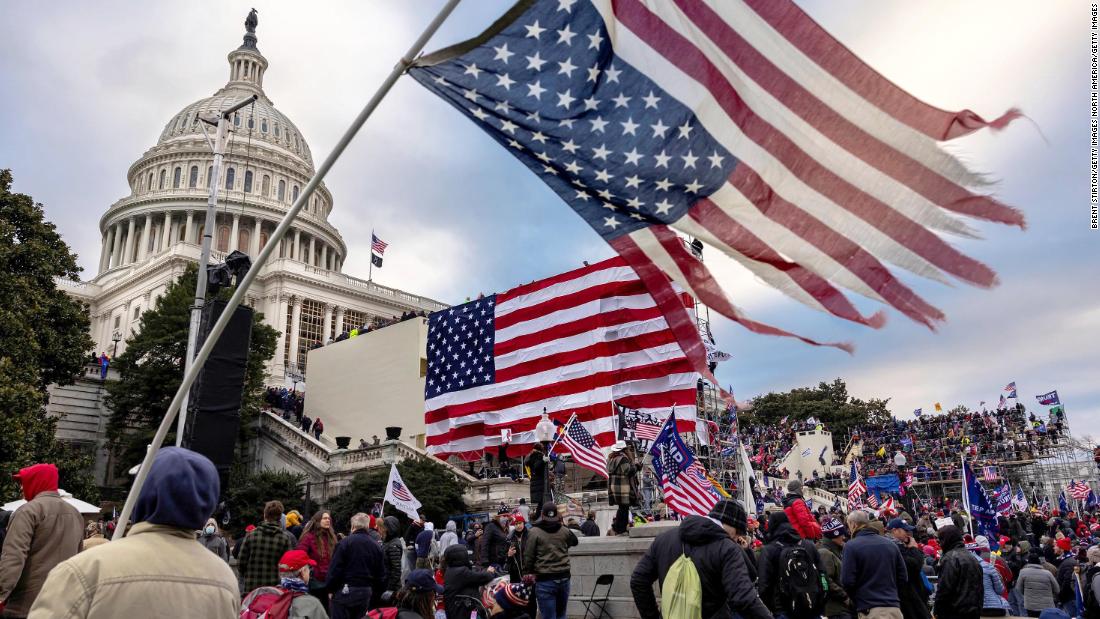
Top US general testified that Pence — not Trump — ordered National Guard troops to respond to Jan. 6 riot
From CNN's Zach Cohen
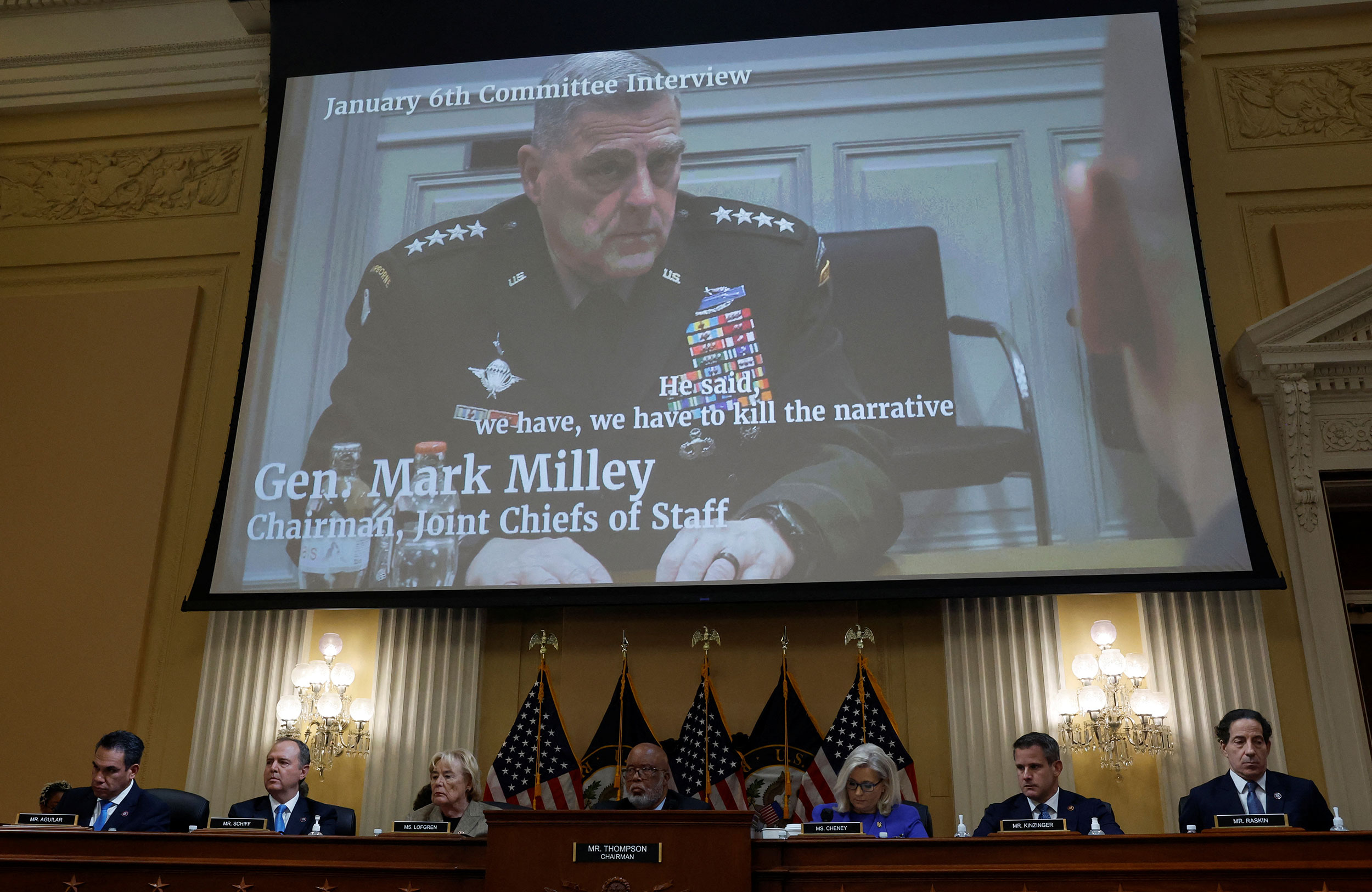
Rep. Liz Cheney, the vice chair of the Jan 6. committee, revealed new video from the committee’s interview with Chairman of the Joint Chiefs of Staff Mark Milley saying then-Vice President Mike Pence was the one who ordered National Guard troops to respond to the violence on Jan. 6, 2021, but that he was told by the White House to say it was former President Trump.
“Vice President Pence – there were two or three calls with Vice President Pence. He was very animated, and he issued very explicit, very direct, unambiguous orders. There was no question about that,” Milley says in the video.
“He was very animated, very direct, very firm to Secretary Miller. Get the military down here, get the guard down here. Put down this situation, et cetera,” he added, referring to Pence.
Milley also described his interactions with Trump’s chief of staff Mark Meadows that day, drawing a stark contrast between those conversations with Pence.
“He said: We have to kill the narrative that the Vice President is making all the decisions. We need to establish the narrative, you know, that the President is still in charge and that things are steady or stable, or words to that effect,” Milley says in the video, referring to what Meadows told him.
“I immediately interpreted that as politics. Politics. Politics. Red flag for me, personally. No action. But I remember it distinctly,” he added.
CNN previously reported that Pence, not Trump, facilitated the mobilization of National Guard troops to respond to the riot.
The video of Milley’s testimony, who remains the top US military officer now in the Biden administration, speaks to how the committee will seek to highlight what Trump was doing, and not doing, as the violence was spiraling out of control – something CNN has previously reported will be an area of focus during the public hearings.
Cheney tells Jan. 6 defenders: "Your dishonor will remain" after Trump is gone
From CNN's Clare Foran
GOP Rep. Liz Cheney, vice chair of the Jan. 6 committee, had a critical message to members of her own party who, in her words, defend what is "indefensible."
"Tonight I say this to my Republican colleagues who are defending the indefensible: There will come a day when Donald Trump is gone, but your dishonor will remain," Cheney said.
Cheney herself has faced a major backlash from fellow Republicans for becoming a prominent critic of Trump and his lies over the election outcome.
Last year, Cheney lost her post in House Republican leadership after publicly rejecting for months Trump's lie that he won the 2020 presidential election.
"In our country, we don't swear an oath to an individual or a political party. We take our oath to defend the United States Constitution. That oath must mean something," Cheney said during the hearing.
Top DOJ official says Trump loyalist was proposing "meddling" in election outcome
From CNN's Alex Rogers
The House select committee investigating Jan. 6 will hold a hearing next week exploring how former President Donald Trump “corruptly” planned to replace acting Attorney General Jeffrey Rosen “so the US Justice Department would spread his false stolen election claims,” according to Wyoming Republican Rep. Liz Cheney.
In her opening statement, Cheney said that Trump offered Jeff Clark, the acting attorney general of the civil division, the job of acting attorney general, and wanted him to send a letter to battleground states saying that the Justice Department had “identified significant concerns that may have impacted the outcome of the election.”
After the letter was circulated around the Justice Department, the plan drew fierce blowback from top officials, including then-acting deputy attorney general Richard Donoghue.
In audio aired on Thursday night, Donoghue testified that he told Clark, “What you are proposing is nothing less than the United States Justice Department meddling in the outcome of a presidential election.”
Rosen and Donoghue have been invited by the committee to publicly testify in its hearings. Clark has refused to testify.
The House committee’s effort follows a months-long investigation by the Senate Judiciary committee, which released a report last year on how Trump and Clark sought to overturn the 2020 presidential election.
Pence's fidelity to Constitution was more important than to Trump, VP's chief of staff told committee
From CNN's Zachary Cohen
Former Vice President Mike Pence’s then-chief of staff, Marc Short, acknowledged to the Jan. 6 committee during closed-door testimony that his former boss knew former President Donald Trump lost the election and determined his “fidelity to the Constitution was more important that his fidelity to President Trump,” according to previously unseen video played during tonight's hearing.
“I think the vice president was proud of his four years of service and he felt like much had been accomplished during those four years. And I think he was proud to have stood beside the President for all that had been done. But I think he ultimately knew that his fidelity to the Constitution was his first and foremost oath, and that’s – that’s what he articulated publicly and I think that’s what he felt,” Short said in the short video clip.
Short was then asked if Pence’s “fidelity to the Constitution was more important that his fidelity to President Trump and his desire …”
He responded: “The oath he took, yes.”
Short quietly testified before the committee behind closed doors in January after receiving a subpoena and his interview marked the most significant sign to date that Pence's team was cooperating with the probe.
Rep. Scott Perry and other GOP lawmakers sought pardons from Trump after Jan. 6
From CNN's Katelyn Polantz
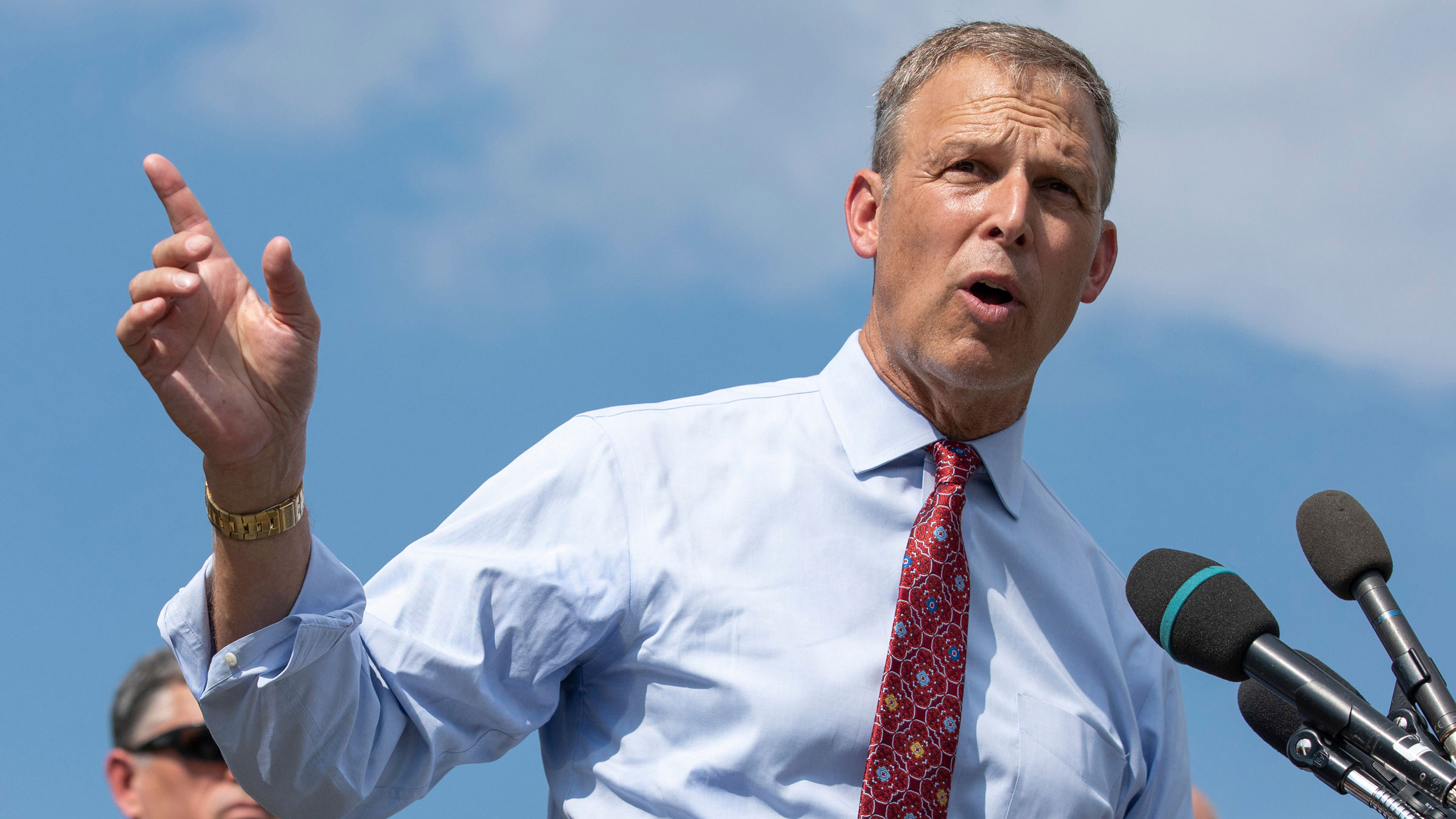
GOP Rep. Liz Cheney, the vice chair of the Jan. 6 committee, said that Rep. Scott Perry of Pennsylvania and "multiple other Republican congressmen" sought pardons from then-President Donald Trump after Jan. 6, 2021.
"Representative Perry contacted the White House in the weeks after January 6th to seek a presidential pardon. Multiple other Republican congressmen also sought presidential pardons for their roles in attempting to overturn the 2020 election," Cheney said on Thursday night during the committee's prime-time hearing.
Perry didn't speak at the pro-Trump rally on Jan. 6, 2021, but was a key player in multiple aspects of Trump's effort to undermine the 2020 election — and the committee has sought his testimony.
CNN previously reported that Reps. Andy Biggs, Mo Brooks and Paul Gosar were among some Republicans who feared their legal exposure and sought clemency.
They were ultimately not pardoned, nor were charged Jan. 6 insurrection defendants who also lobbied for pardons.
Top advisers around Trump, including his family, told Trump not to pardon himself, his family or any GOP lawmakers prospectively.
At least 4 Trump aides testified that they told him — and his team — that he lost reelection
From CNN's Marshall Cohen
At least four Trump aides testified to the Jan. 6 House select committee that they told former President Trump or his former chief of staff Mark Meadows that he lost the 2020 election and there wasn’t widespread voter fraud, according to portions of their depositions that were revealed Thursday at the panel’s first major public hearing.
The officials included Attorney General Bill Barr, Trump campaign spokesperson Jason Miller, the Trump campaign’s general counsel Matt Morgan, and another Trump campaign lawyer Alex Cannon.
“I was in the Oval Office,” Miller said in his deposition, a clip of which was played at Thursday’s hearing. “At some point in the conversation, Matt Oczkowski, who was the lead data person, was brought on, and I remember he delivered to the President in pretty blunt terms that he was going to lose.”
According to a clip of Barr’s testimony, played during Thursday’s hearing, Barr said: “I repeatedly told the President in no uncertain terms that I did not see evidence of fraud, you know, that would have affected the outcome of the election. And frankly, a year and a half later, I still haven’t seen anything to change my mind on that.”
Barr also said the conspiracy theories that Trump embraced about Dominion voting machines rigging the election were “complete nonsense,” and that he advised Trump that it was “crazy stuff.”
And Cannon testified that he told Meadows by “mid-to-late November” that the campaigns came up empty when it tried to find widespread fraud in key states that Trump lost. Cannon said Meadows responded to his assessment by saying, "so there’s no there there.” (Despite that acknowledgement, Meadows continued aiding Trump's efforts to push false voter fraud claims.)
This was the first time that it became publicly known that Morgan and Cannon met with the committee behind closed doors, and shows that the panel got some cooperation from Trump campaign operatives, even though other senior Trump advisers have resisted the subpoenas and refused to provide documents.
Many of these witnesses sat for lengthy interviews, but the committee showed only selective excerpts during Thursday’s primetime hearing, and has not yet released full transcripts of their depositions.
Ex-Trump adviser says former President was told "in pretty blunt terms that he was going to lose"
From CNN's Paul LeBlanc
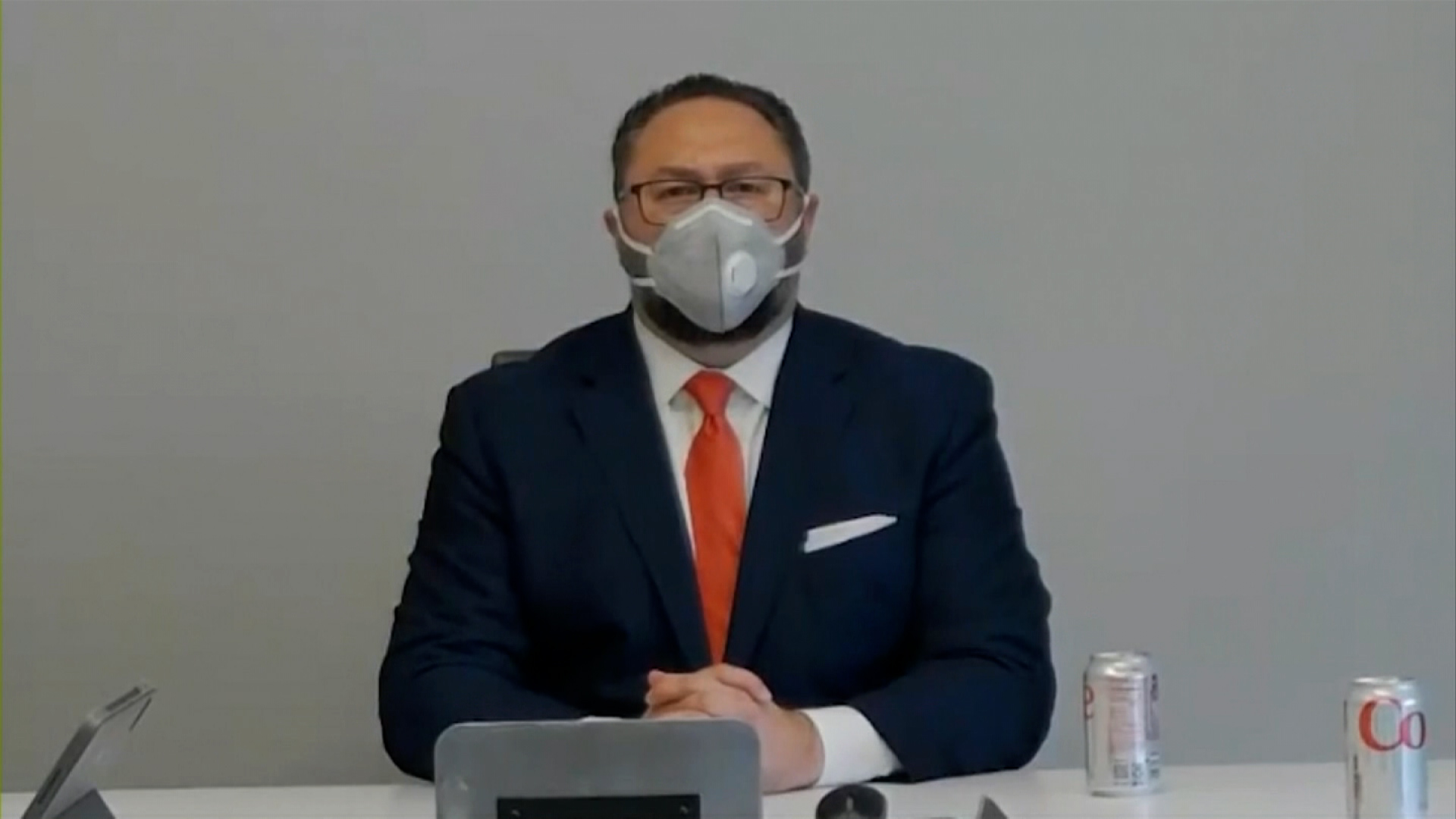
The House select committee played a clip of recorded testimony from ex-Trump adviser Jason Miller stating that then-President Donald Trump was told by the campaign's lead data aide "in pretty blunt terms that he was going to lose."
A former senior adviser to Trump, Miller was involved in the former President's 2016 and 2020 White House bids.
CNN previously reported that, days after the election, his campaign's top data adviser told Trump in "blunt terms" that he was headed towards defeat, according to an account Miller gave the committee, which was disclosed in deposition excerpts filed with the court.
Miller himself gave Trump his opinion — in "several" conversations — that "specific to election day fraud and irregularities, there were not enough to overturn the election," according to his account to the committee.
Panel plans to use future hearings to examine role of Trump lawyer in plans to subvert election certification
From CNN's Katelyn Polantz
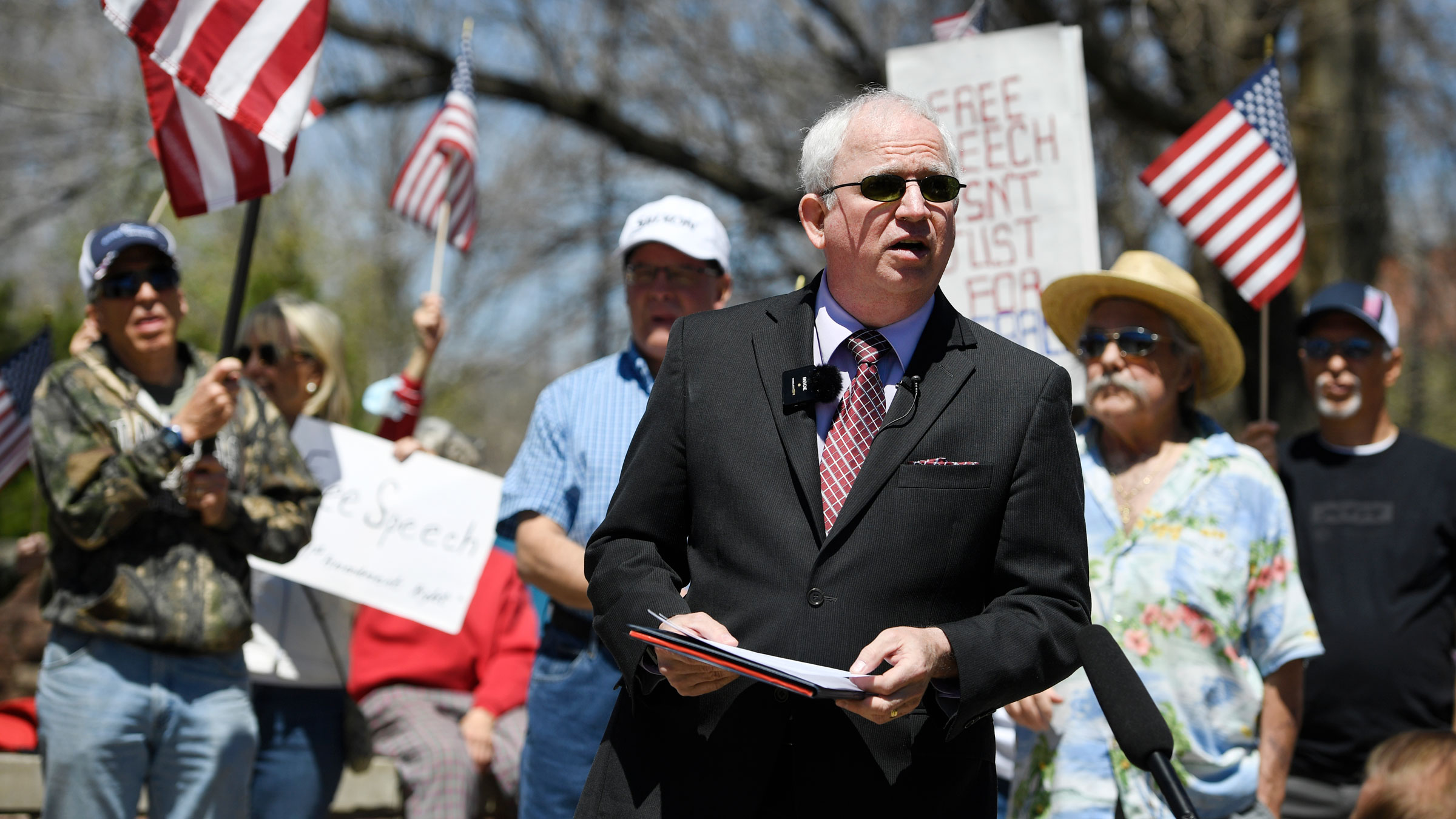
The House Select Committee plans to use future hearings to examine how former President Donald Trump used a conduit, lawyer John Eastman, in his plans to subvert the certification of the election on Jan. 6, 2021.
The committee has obtained hundreds of Eastman’s emails on the subject as recently as yesterday, though they have not yet been released publicly.
In response to the House committee, Eastman invoked his Fifth Amendment right protecting him from self-incrimination, so he did not provide any testimony.
Michael Luttig, a former federal judge who advised former Vice President Mike Pence not to throw out the electoral vote, spoke to the committee about Eastman.
Luttig said Eastman was “wrong at every turn,” according to GOP. Rep. Liz Cheney, the vice chair of the Jan. 6 committee.
Cheney also highlighted a searing email from another lawyer close to Pence, his former chief counsel Greg Jacob. “Thanks to your bullshit, we are under siege,” Jacob wrote to Eastman during the insurrection.
Cheney then said the committee has learned new details “about the Trump campaign and other Trump associates’ efforts to instruct Republicans in multiple states to create intentionally false electoral slates, and transmit those slates to Congress, and the National Archives, falsely certifying that Trump won states he actually lost.”
On Wednesday, the House Committee was still obtaining some of Eastman’s emails. A handful of additional emails they received yesterday largely focused on the electors plan, and getting state legislators on board with it, according to court proceedings.
Some of those emails documented meeting agendas where Eastman laid out a so-called “ground game” in the states. Others “do not offer legal advice but aim to persuade legislators to take political action," the judge wrote.
The electors scheme is now under investigation in two criminal probes—in Georgia and by federal authorities.��
Thompson contrasts Trump's election lies to Lincoln's commitment to a peaceful transfer of power
Democratic Rep. Bennie Thompson, the chairman of the Jan. 6 committee, highlighted the oath that lawmakers take to "defend the Constitution against all enemies foreign and domestic" and how the attack on Jan. 6 tested the oath, during his opening statement.
"When the United States Capitol was stormed and burned in 1814, foreign enemies were responsible. After war in 1862, when American citizens had taken up arms on this country, Congress adopted a new oath to help make sure that no person who had supported the rebellion could hold a position of public trust. Therefore, congresspersons and United States federal government employees were required for the first time to swear an oath to defend the Constitution against all enemies, foreign and domestic. That oath was put to test on January 6, 2021," Thompson said.
He added, "But unlike in 1814, it was domestic enemies of the Constitution who stormed the Capitol and occupied the Capitol, who sought to thwart the will of the people, to stop the transfer of power. And, so, they did at the encouragement of the President of the United States, the President of the United States trying to stop the transfer of power, a precedent that had stood for 220 years, even as our democracy had faced its most difficult test," referring to former President Trump.
Thompson contrasted Trump's reluctance to transfer power to President Abraham Lincoln's commitment to maintain the tradition despite the Civil War.
"Thinking back again to the Civil War in the summer of 1864, the President of the United States believed that we would be doom as be it for reelection. He believed his opponent, General George McClellan would wave the white flag when it came to preserving the union. But even with that grim fate hanging in the balance, President Lincoln was ready to accept the will of the voters come what may. He made a quiet pledge. He wrote down the words, 'This morning, as for some days passed, it seems exceedingly probable that this administration will not be reelected, and it will be my duty to so cooperate with the President-elect...' Lincoln sealed that memo and asked his cabinet secretaries to sign it, sight unseen. He asked them to make the same commitment that he did, to accept defeat if indeed defeat was the will of the people to uphold the rule of law, to do whatever president came before him did and why every president who followed him would do. Until Donald Trump. Donald Trump lost the presidential election in 2020. The American people voted him out of office. It was not because of a rigged system. It was not because of voter fraud." Thompson said.

 Landwebs
Landwebs 








